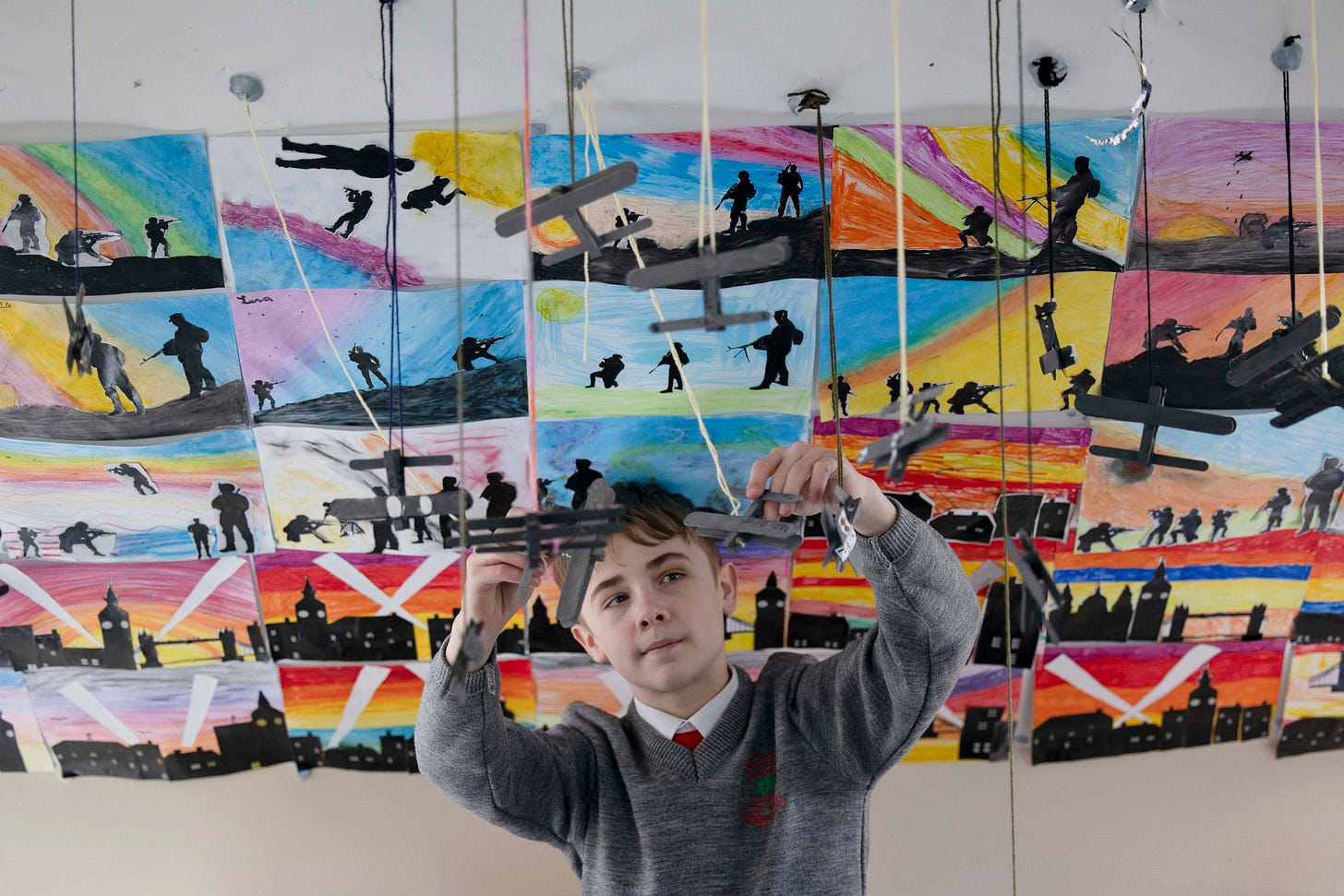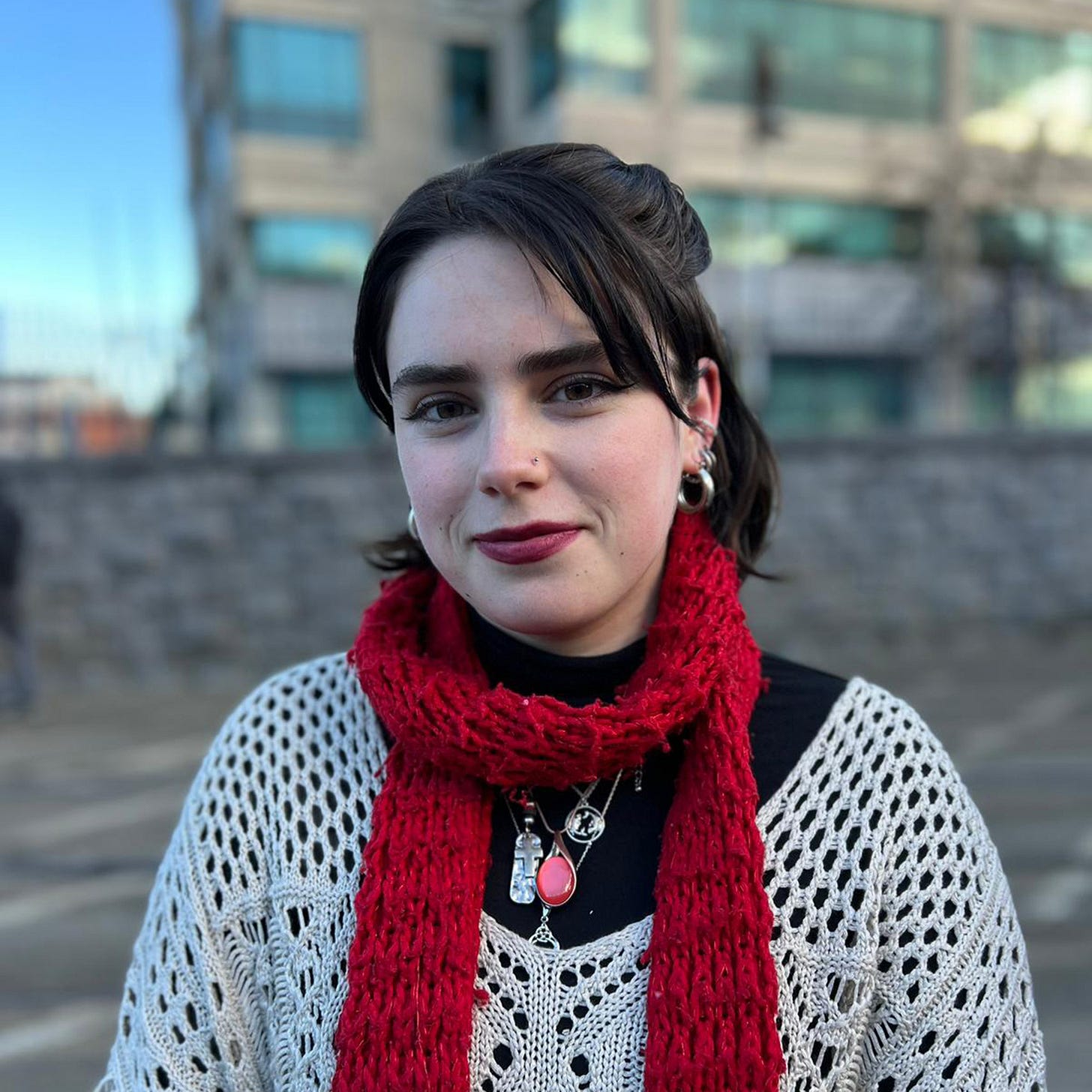A very touching film
Muirinn Ní Chárthaigh's short Irish film Gan Tadhall (Untouched) is a poignant reminder that touch is not something we can live without: it's screening at First Cut Youth Film Festival in Youghal.

There’s no denying it: we need touch.
For a very long time, a wide variety of scientific studies have shown that sensory contact with other humans is essential to our healthy development, to what makes us not only thrive, but even survive.
Neuroscientist Ruth Feldman has shown in numerous studies that adopting a strategy of “kangaroo care” (prolonged skin-to-skin contact for babies) for preterm babies means better health and cognitive outcomes for at least the first decade of a child’s life.
Over 60 years of research demonstrate that being deprived of touch in early life means being deprived of the neurotransmitter serotonin, of having higher levels of the stress hormone cortisol, with institutionalised babies deprived of affection and touch suffering stunted growth and having poorer chances of survival, even brains up to 20% smaller than average.
Despite all this knowledge, in many cultures, touch is treated as an optional extra, something we crave and enjoy, that brings comfort, but that we can live without.
But sometimes art can do what science can’t: if touch is our home, young filmmaker Muirinn Ní Chárthaigh asks in her latest short film Gan Tadhall (Untouched), why should we be deprived of our home?
Muirinn, who lives in Wexford Town and is in her second year of a BA in Film at the Institute of Art Design + Technology (IADT) in Dun Laoghaire, says she wasn’t setting out to make a film about the impacts of Covid on young people’s lives when she wrote Gan Tadhall, but that the experience of lockdowns had definitely made its way into her thinking when she first came up with the idea for her Irish language film.
“I found that throughout the couple of years, touch was something I was deprived of; a lot of people were,” Muirinn says. “A touch on the arm, a hug: I really started to miss it and as a young person, I just wasn’t around my friends.”
“I didn’t realise how often it was there, something so small and simple, until suddenly it wasn’t there. So Covid was definitely part of where this idea came from.”
Substitutes for human connection
When regular affectionate connection isn’t present in our lives, Gan Tadhall observes, and when the only types of touch we encounter are episodes of functional contact, we seek out substitute connections.
“Touch suddenly becomes things like scratching your arm or putting a cigarette to your lips with your fingers or shaving your face or your leg - you realise it’s the only sensation you’re getting,” Muirinn says. “It makes you realise that human touch is a basic need, that humans need it to survive and to thrive. That’s the sadder side to it.”
“Touching your phone, you’re never going to get the same connection you would if you held someone else’s hand.”
Gan Tadhall shows us all these things, from the perspective of a young dancer, played and choreographed by Muirinn’s younger sister Éabha, with a narration penned by Muirinn.
“I don’t consider it a dance film but dance is a huge theme in it,” Muirinn says. “I found when I was experiencing the deprivation of touch, that dance was some sort of release for me. I grew up dancing, and it just made me feel better. When you’re dancing you do have forms of contact: so dance is a huge part of the film, but I think it’s more than just a dance film.”
The film was shot over the course of two weekends, with a skeleton crew of three plus Muirinn, which she says worked well when they were filming non-actors, sometimes in home settings.
“So many of these images are quite intimate, I think, and a lot of the people we were working with aren’t actors and I wanted them to feel comfortable as well,” she says.
The Cailín Ciúin effect
Gan Tadhall is in Irish, with English subtitles. For Muirinn, film in Irish has a special resonance and she’s keen to keep making Irish language films.
“The theme of this film was home, and Irish is my home language,” she says. “I don’t think Irish is a dying language, but I get scared when I see that most people around me can’t speak it. Making films in Irish makes me have more hope for it.”
The rip-roaring success of Colm Bairéad’s debut feature An Cailín Ciúin, which was nominated for two BAFTAs and a Best International Feature Film Academy Award, has sent ripples of optimism through the world of film in Ireland, most especially for those working in Irish language film.
“I remember saying in my first year of college that it was my dream to make a successful feature film in Irish,” Muirinn says with a smile. “Then An Cailín Ciúin comes out and it’s doing incredibly all over the world: that’s really inspiring and hopeful and amazing. It makes me feel really good that Ireland is doing so well in the film world. It feels very exciting.”
Seeing your film on the big screen
The idea for Gan Tadhall was born about a year and a half ago, and Muirinn has worked on the film outside of her college coursework: she applied for and received funding of €1,000 from youth festival Fresh Film. “Everything else I made up until that was no budget,” she says.
Muirinn’s mother is professional photographer Paula Malone Carty, while her dad is a chef: Muirinn says she grew up in a creative atmosphere, and first found her way into film through her love of drama and acting.
“I did drama growing up and I loved the stage and plays and acting,” Muirinn says. “When I was 13 or 14, I had this idea for a film as something I’d like to act in and then I realised, wait, I can actually write these things myself and make films. Then I realised that I much prefer writing the scripts and making the films rather than acting in them and being in front of the camera.”
In her studies in IADT, Muirinn has tried out a variety of roles within film, including producing, but says she’s most drawn to directing and editing. And while the glamour of red carpet events has some superficial appeal, she’s happy to bed down into what is a technically exacting industry, to learn her craft and find work after college.
“Of course it would be great to be at the Oscars, but there’s more to the film-making world and more ways of finding success in it,” she says. “I just want to make good films, and work with good people, and make stuff in Irish.”
The magic of the Big Screen
For Muirinn, despite the proliferation of film and video in our lives, cinema as an art form, and the magic of watching films on a big screen, will never fade.
“I always loved the experience of going in to the cinema with the huge big screen: even though you can watch things on your phone or your laptop now, it’s not the same experience as sitting in a cinema with the lights off and no distractions,” she says.
Muirinn is returning to First Cut Youth Film Festival in Youghal this weekend, with a screening of Gan Tadhall: she previously won Best Director at the festival for her experimental Irish short Liber Saor, in 2021.
So what’s it like seeing her own film on the big screen?
“It’s actually scary,” she says with a laugh. “It’s like everyone can see every tiny thing now, every little flaw. But it’s also amazing and exhilarating. Films are meant to be seen on the big screen and when you finally get that opportunity it’s like, woah! I’m very grateful to get the chance to see it on the big screen, because up until now I’ve only seen it on my computer and on my editing software.”
Gan Tadhall by Muirinn Ní Chárthaigh is screening in Programme 2 of First Cut Youth Film Festival’s Open Call programmes at 11.30 on Saturday, March 11 in the Mall Arts Centre, Youghal. Full programme here.
A bit about First Cut Youth Film Festival (FCYFF)

Now in its 14th year, First Cut Youth Film Festival takes place in Youghal from March 8 to March 11.
Over 200 Irish and International films made by young people under 25 will be screened during the festival and more 40 primary and secondary schools have created short films for the festival, which, alongside workshops and panel discussions, includes:
The annual Youth Music Video Competition (YMVC), mentored by of music video directors Brendan Canty, who made Hozier’s Take Me to the Church video, and Bob Gallagher, best known for his videos with Gilla Band. On Saturday March 11 all videos will premier and the award for Best YMVC Music Video will be announced and the winner will receive a €5,000 bursary.
Screenings of more than 30 Irish Language short films as part of the Athrú Amháin / One Change programme
A special family screening of animation Marcel The Shell with Shoes On, which will be screened after animations from First Cut Film Festival Youghal and Midleton Animation Workshop.
A TikTok filmmaking competition
A programme of short films curated by Cork International Film Festival
The festival is also a good opportunity to pay a visit to the Regal Cinema, Youghal’s lovingly restored Art Deco picture house: events and screenings for FCYFF are held both at the Regal and at The Mall Arts Centre.






